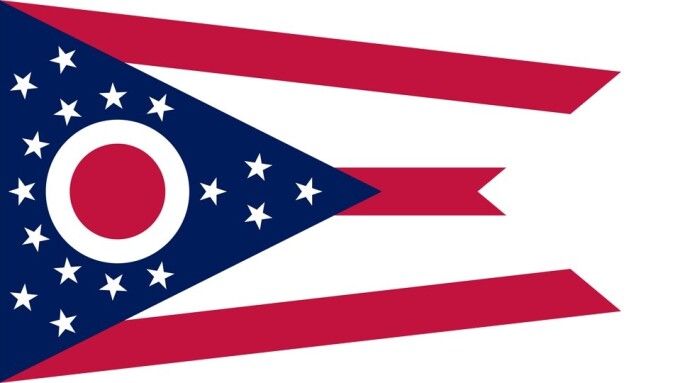LOS ANGELES — Ohio is among the latest states to jump on the porn-as-public-health-hazard bandwagon, which has seen boilerplate legislation drafted by antiporn zealots shopped to gullible backers, state-by-state.
The newest incarnation of this public hoax takes the form of Ohio House Resolution 180, sponsored by State Rep. Jena Powell, among others, which parrots the tiresome refrain that “pornography is a public health hazard with statewide and national public health impacts leading to a broad spectrum of individual and societal harms.”
Powell sees a link between pornography and violence that many folks more familiar with the topic would scoff at.
“We have hundreds of studies that show the correlation between pornography and its negative effects on men, and it’s leading to the abuse of women,” Powell told CBN News, claiming that 88 percent of pornography shows violence toward women, and of that 88 percent, 95 percent shows a positive or neutral reaction from women, stating, “It’s increasing a culture of violence.”
Among the problematic positions put forth in H.R. 180 are the claims that porn “perpetuates human trafficking and a sexually toxic environment; [that] sex trafficking, prostitution and pornography are all interrelated; [and that] sex traffickers often create pornography depicting victims of sex trafficking for display or sale online as a means of increasing income and control over victims.”
H.R. 180 also states that “the factors that compel men and women to enter into the pornography industry include poverty, homelessness, a history of childhood sexual or physical abuse, which are similar to the factors that make women, girls and boys vulnerable to being trafficked for sex; [and that] the pornography industry is mostly male-dominated by producers and directors who recruit and capitalize off of filming the exploitation, degradation, and sexualization of women.”
Other little gems claim “studies have shown that there is a correlation between men viewing pornography and an increased rate of interest in rape; and [how] pornography provides sexualized depictions of violence towards women and children, which correlates with an increased demand for sex trafficking, prostitution, child sexual abuse images, and child pornography.”
Porn consumption is also blamed for “an increase in low self-esteem, problematic sexual activity and body image disorders” and for its fanciful ability to “negatively impact healthy brain development and functioning, contribute to emotional and physical illnesses, shape deviant sexual desires and arousal, promote problematic or harmful sexual behaviors and addiction, and lead to difficulty in forming or maintaining positive, intimate relationships.”
H.R. 180 condemns the horrors of sexual stimulation, posturing un-cited studies that “prove” porn’s harmful effects, while wallowing in hyperbole and hysteria — but what does it hope to accomplish?
“This resolution does not outlaw pornography — it does not try to say that people cannot view it. That is a personal freedom that the Supreme Court has already affirmed… We’re not trampling on anyone’s constitutional rights,” Powell explained. “We’ve specifically written this resolution so that it brings awareness to church families and businesses and community members and helping at the local level — we’re pushing the cause to say ‘we’re done with this.’ You can’t view porn and not have implications and have them be negative on society.”
While the proclaimed lack of desire to outlaw porn may be reassuring to some, it’s hard to imagine an outcome where a legislative body would fail to take some type of action following the finding of any “public health crisis” — something that the pushers of this proposal no doubt anticipate.
The full text of the resolution is available here.








